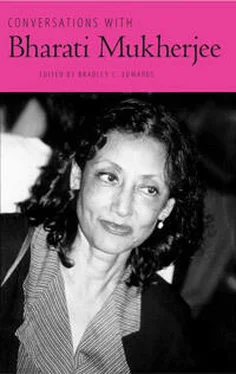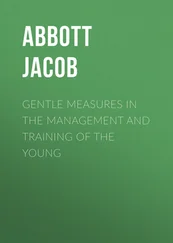Bharati Mukherjee - The Management of Grief
Здесь есть возможность читать онлайн «Bharati Mukherjee - The Management of Grief» весь текст электронной книги совершенно бесплатно (целиком полную версию без сокращений). В некоторых случаях можно слушать аудио, скачать через торрент в формате fb2 и присутствует краткое содержание. Жанр: short_story, на английском языке. Описание произведения, (предисловие) а так же отзывы посетителей доступны на портале библиотеки ЛибКат.
- Название:The Management of Grief
- Автор:
- Жанр:
- Год:неизвестен
- ISBN:нет данных
- Рейтинг книги:4 / 5. Голосов: 1
-
Избранное:Добавить в избранное
- Отзывы:
-
Ваша оценка:
- 80
- 1
- 2
- 3
- 4
- 5
The Management of Grief: краткое содержание, описание и аннотация
Предлагаем к чтению аннотацию, описание, краткое содержание или предисловие (зависит от того, что написал сам автор книги «The Management of Grief»). Если вы не нашли необходимую информацию о книге — напишите в комментариях, мы постараемся отыскать её.
The Management of Grief — читать онлайн бесплатно полную книгу (весь текст) целиком
Ниже представлен текст книги, разбитый по страницам. Система сохранения места последней прочитанной страницы, позволяет с удобством читать онлайн бесплатно книгу «The Management of Grief», без необходимости каждый раз заново искать на чём Вы остановились. Поставьте закладку, и сможете в любой момент перейти на страницу, на которой закончили чтение.
Интервал:
Закладка:
BHARATI MUKHERJEE
The Management of Grief
(1940-)
Born in Calcutta, India, to a prominent family, Bharati Mukherjee received a bachelor's degree from the University of Calcutta and two masters degrees (in literature and ancient Indian culture) from the University of Baroda. She left India in 1961 to earn a Ph.D. at the Writers' Workshop at the University of Iowa. Married in 1966 to the Canadian writer Clark Blaise, Bharati Mukherjee lived in Montreal and taught at McQill University until 1979, at which time, according to her account, the rise of racial intolerance in Canada made living in that country increasingly difficult, and she, Clark Blaise, and their two sons moved to Saratoga Springs, New York, where she taught at Skidmore College. Since that time Bharati Mukherjee has taught at Columbia University, City University, and Queens College, and is currently a professor at Berkeley.
Bharati Mukherjee, who has described herself as imaginatively stimulated by the "exuberance of immigration," became an American citizen in 1988. The work for which she is best known draws upon the experience of immigration in America, not only her own but that of others, of diverse ethnic backgrounds. This alone would make her something of a special case as a writer; the extraordinary range of her authorial "voices" distinguishes her further. Her celebrated collection of stories, The Middleman (1988), is inhabited by naturalized American citizens and refugees from Iraq, Afghanistan, Uganda, and Latin America, as well as India.
Bharati Mukherjee is the author of an earlier short story collection, Darkness (1985). Her novels are The Tiger's Daughter (1972), Wife (1975), and Jasmine (1989); her nonfiction books, co-authored with Clark Blaise, are Days and Nights in Calcutta (1977) and The Sorrow and the Terror (1987).
The Management of Grief
A woman I don't know is boiling tea the Indian way in my kitchen. There are a lot of women I don't know in my kitchen, whispering and moving tactfully. They open doors, rummage through the pantry, and try not to ask me where things are kept. They remind me of when my sons were small, on Mother's Day or when Vikram and I were tired, and they would make big, sloppy omelets. I would lie in bed pretending I didn't hear them.
Dr. Sharma, the treasurer of the Indo-Canada Society, pulls me into the hallway. He wants to know if I am worried about money. His wife, who has just come up from the basement with a tray of empty cups and glasses, scolds him. "Don't bother Mrs. Bhave with mundane details." She looks so monstrously pregnant her baby must be days overdue. I tell her she shouldn't be carrying heavy things. "Shaila," she says, smiling, "this is the fifth." Then she grabs a teenager by his shirttails. He slips his Walkman off his head. He has to be one of her four children; they have the same domed and dented foreheads. "What's the official word now?" she demands. The boy slips the headphones back on. "They're acting evasive, Ma. They're saying it could be an accident or a terrorist bomb."
All morning, the boys have been muttering, Sikh bomb, Sikh bomb. The men, not using the word, bow their heads in agreement. Mrs. Sharma touches her forehead at such a word. At least they've stopped talking about space debris and Russian lasers.
Two radios are going in the dining room. They are tuned to different stations. Someone must have brought the radios down from my boys' bedrooms. I haven't gone into their rooms since Kusum came running across the front lawn in her bathrobe. She looked so funny, I was laughing when I opened the door.
The big TV in the den is being whizzed through American networks and cable channels.
"Damn!" some man swears bitterly. "How can these preachers carry on like nothing's happened?" I want to tell him we're not that important. You look at the audience, and at the preacher in
his blue robe with his beautiful white hair, the potted palm trees under a blue sky, and you know they care about nothing.
The phone rings and rings. Dr. Sharma's taken charge. "We're with her," he keeps saying. "Yes, yes, the doctor has given calming pills. Yes, yes, pills are having necessary effect." I wonder if pills alone explain this calm. Not peace, just a deadening quiet. I was always controlled, but never repressed. Sound can reach me, but my body is tensed, ready to scream. I hear their voices all around me. I hear my boys and Vikram cry, "Mommy, Shaila!" and their screams insulate me, like headphones.
The woman boiling water tells her story again and again. "I got the news first. My cousin called from Halifax before six A.M., can you imagine? He'd gotten up for prayers and his son was studying for medical exams and heard on a rock channel that something had happened to a plane. They said first it had disappeared from the radar, like a giant eraser just reached out. His father called me, so I said to him, what do you mean, 'something bad'? You mean a hijacking? And he said, Behn, there is no confirmation of anything yet, but check with your neighbors because a lot of them must be on that plane. So I called poor Kusum straight-away. I knew Kusum's husband and daughter were booked to go yesterday."
Kusum lives across the street from me. She and Satish had moved in less than a month ago. They said they needed a bigger place. All these people, the Sharmas and friends from the Indo-Canada Society, had been there for the housewarming. Satish and Kusum made tandoori on their big gas grill and even the white neighbors piled their plates high with that luridly red, charred, juicy chicken. Their younger daughter had danced, and even our boys had broken away from the Stanley Cup telecast to put in a reluctant appearance. Everyone took pictures for their albums and for the community newspapers — another of our families had made it big in Toronto — and now I wonder how many of those happy faces are gone. "Why does God give us so much if all along He intends to take it away?" Kusum asks me.
I nod. We sit on carpeted stairs, holding hands like children. "I never once told him that I loved him," I say. I was too much the well-brought-up woman. I was so well brought up I never felt comfortable calling my husband by his first name.
"It's all right," Kusum says. "He knew. My husband knew. They
felt it. Modern young girls have to say it because what they feel is fake."
Kusum's daughter Pam runs in with an overnight case. Pam's in her McDonald's uniform. "Mummy! You have to get dressed!" Panic makes her cranky. "A reporter's on his way here."
"Why?"
"You want to talk to him in your bathrobe?" She starts to brush her mother's long hair. She's the daughter who's always in trouble. She dates Canadian boys and hangs out in the mall, shopping for tight sweaters. The younger one, the goody-goody one according to Pam, the one with a voice so sweet that when she sang bhajans for Ethiopian relief even a frugal man like my husband wrote out a hundred-dollar check, she was on that plane. She was going to spend July and August with grandparents because Pam wouldn't go. Pam said she'd rather waitress at McDonald's. "If it's a choice between Bombay and Wonderland, I'm picking Wonderland," she'd said.
"Leave me alone," Kusum yells. "You know what I want to do? If I didn't have to look after you now, I'd hang myself. "
Pam's young face goes blotchy with pain. "Thanks," she says, "don't let me stop you."
"Hush," pregnant Mrs. Sharma scolds Pam. "Leave your mother alone. Mr. Sharma will tackle the reporters and fill out the forms. He'll say what has to be said."
Pam stands her ground. "You think I don't know what Mummy's thinking? Why her? That's what. That's sick! Mummy wishes my little sister were alive and I were dead."
Читать дальшеИнтервал:
Закладка:
Похожие книги на «The Management of Grief»
Представляем Вашему вниманию похожие книги на «The Management of Grief» списком для выбора. Мы отобрали схожую по названию и смыслу литературу в надежде предоставить читателям больше вариантов отыскать новые, интересные, ещё непрочитанные произведения.
Обсуждение, отзывы о книге «The Management of Grief» и просто собственные мнения читателей. Оставьте ваши комментарии, напишите, что Вы думаете о произведении, его смысле или главных героях. Укажите что конкретно понравилось, а что нет, и почему Вы так считаете.












